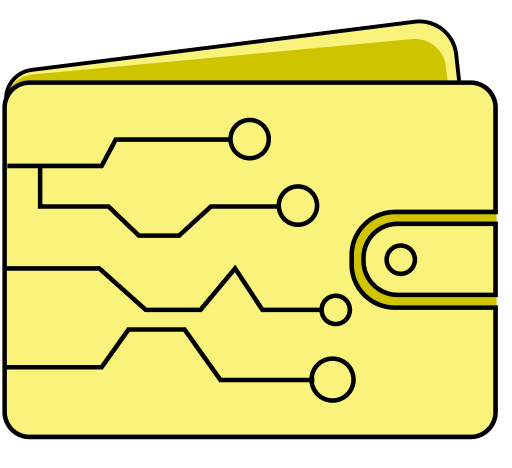Agama Wallet is a multi-cryptocurrency wallet built for safe handling of digital assets on different blockchain networks. Developed to accommodate a variety of cryptocurrencies in one simple-to-navigate interface, Agama Wallet makes digital asset handling convenient and user-friendly. Praized for its friendly interface, Agama Wallet is perfect for new and seasoned cryptocurrency users. Agama Wallet has a mission to offer a safe and seamless user experience for cryptocurrency storage, as well as cryptocurrency sending and receiving.

Agama Wallet enables secure management of Komodo and other coins on desktop
Agama Wallet Review and History
Agama Wallet was originally developed as a part of the Komodo ecosystem with the mission of providing an easy-to-use tool for handling numerous cryptocurrencies in a safe and secure manner. The privacy and cutting-edge blockchain solutions provided by Komodo kicked off the development of Agama Wallet with a mission to simplify digital asset handling. Agama Wallet evolved over time with additional cryptocurrency handling and enhanced user features.
The wallet also attracted attention by implementing features such as atomic swaps, where users can exchange one cryptocurrency for another without a middleman. Agama Wallet was also distinguished by an easy-to-use interface and gathered a broad user following. But in June 2019, the development team at Komodo did find a vulnerability in Agama Wallet and took swift action to safeguard user assets by transitioning to a secure wallet solution.
Agama Wallet had already gained a reputation as a reputable wallet in the crypto community even before the security incident. The ease of use and support for numerous cryptocurrencies had earned the loyalty of the users.
Main Features of Agama Wallet
Agama Wallet’s most notable feature is its multi-cryptocurrency support, which provides users with a means to hold a variety of different digital assets in a single location. Whether one holds Bitcoin, Ethereum, Komodo, or other altcoins, Agama Wallet facilitates hassle-free asset handling.
One other notable aspect is its ability to conduct atomic swaps to exchange cryptocurrency between peers in an in-wallet exchange. The atomic swaps provide increased user freedom and anonymity by cutting out central exchanges. Agama was one of the first wallets to adopt this new technology.
Furthermore, Agama Wallet provided users with flexibility in selecting transaction options. Users could choose between Lite Mode, which relies on servers to simplify transactions, and Native Mode, enabling users to run a full blockchain node for maximum control and decentralization.
Security Features in Agama Wallet
Agama Wallet gave high importance to security right from the outset. To secure user assets, it implemented basic security features like encryption of private keys, PIN protection, and backup features. Private keys could be stored by users in local storage, providing them with full control of assets without the need for third-party custody.
Yet the 2019 vulnerability find revealed threats and triggered the recommendation by Komodo developers to migrate to a secure alternative wallet immediately. The team reacted by mitigating risks proactively as early as possible, indicating diligence in protecting users.
Barring the vulnerability incident, the early architecture of the wallet had sound security procedures in place to reduce the risk of loss or unauthorized use of the money.
Supported Cryptos and Platforms
Agama Wallet originally supported the cryptocurrencies most associated with the Komodo ecosystem, such as its native token, Komodo (KMD). It grew much faster to incorporate commonly used coins like Ethereum (ETH), Litecoin (LTC), and a variety of ERC-20 tokens.
This extensive suite of supported digital assets attracted various crypto users seeking a unified solution. The ease of being able to manage and access numerous cryptocurrencies in a single wallet without requiring a different application was a value appreciated by users.
Agama Wallet was supported on a number of platforms such as Windows, macOS, and Linux, allowing users to interact with their assets using preferred operating systems. Cross-platform support of the wallet also increased its convenience and attractiveness.
User Experience and Interface
One of Agama Wallet’s major advantages was how simple and easy to navigate its interface was. Built with ease and convenience in mind, even beginners with little knowledge of cryptocurrency were able to handle their virtual assets with ease.
Straightforward instructions, easy-to-use buttons, and explanatory tooltips helped users navigate the process of account management and transactions. Sending, receiving, and exchanging assets proved to be effortless and time-saving for users.
User feedback emphasized how responsive and efficient the wallet was. Through focusing on user experience, Agama Wallet was able to maintain its user population even with the competitive cryptocurrency wallets and security breach.
Community and Development Support
Agama Wallet’s development was heavily influenced by the engagedKomodo community. Members actively contributed to improving the wallet with feedback, feature requests, and discussions. The developers regularly posted updates and security advisories to keep users in the know.
The Komodo community was also a reservoir of user support and bug fixing and provided in-depth guides to new users. The lively community interaction was a major factor in the popularity and ease of use of the wallet.
Although Agama Wallet’s subsequent change in recommendation after the security breach, its community-oriented attitude and community support ensured it remained a favored tool among crypto users.
Conclusion
Agama Wallet was important in streamlining digital asset handling in a variety of different cryptocurrencies. With the inclusion of features such as atomic swaps and an easy-to-use interface, it offered a useful tool for beginners and pros alike. While a vulnerability in its security resulted in a switch away from Agama Wallet, its impact can still be seen in the crypto world today with an emphasis on innovation and active security procedures in managing cryptocurrency.














 Twitter
Twitter
 Telegram
Telegram
